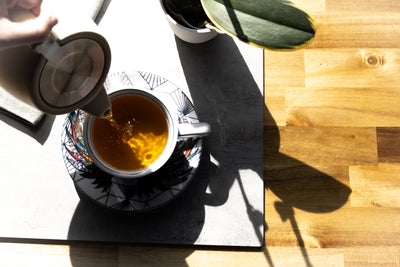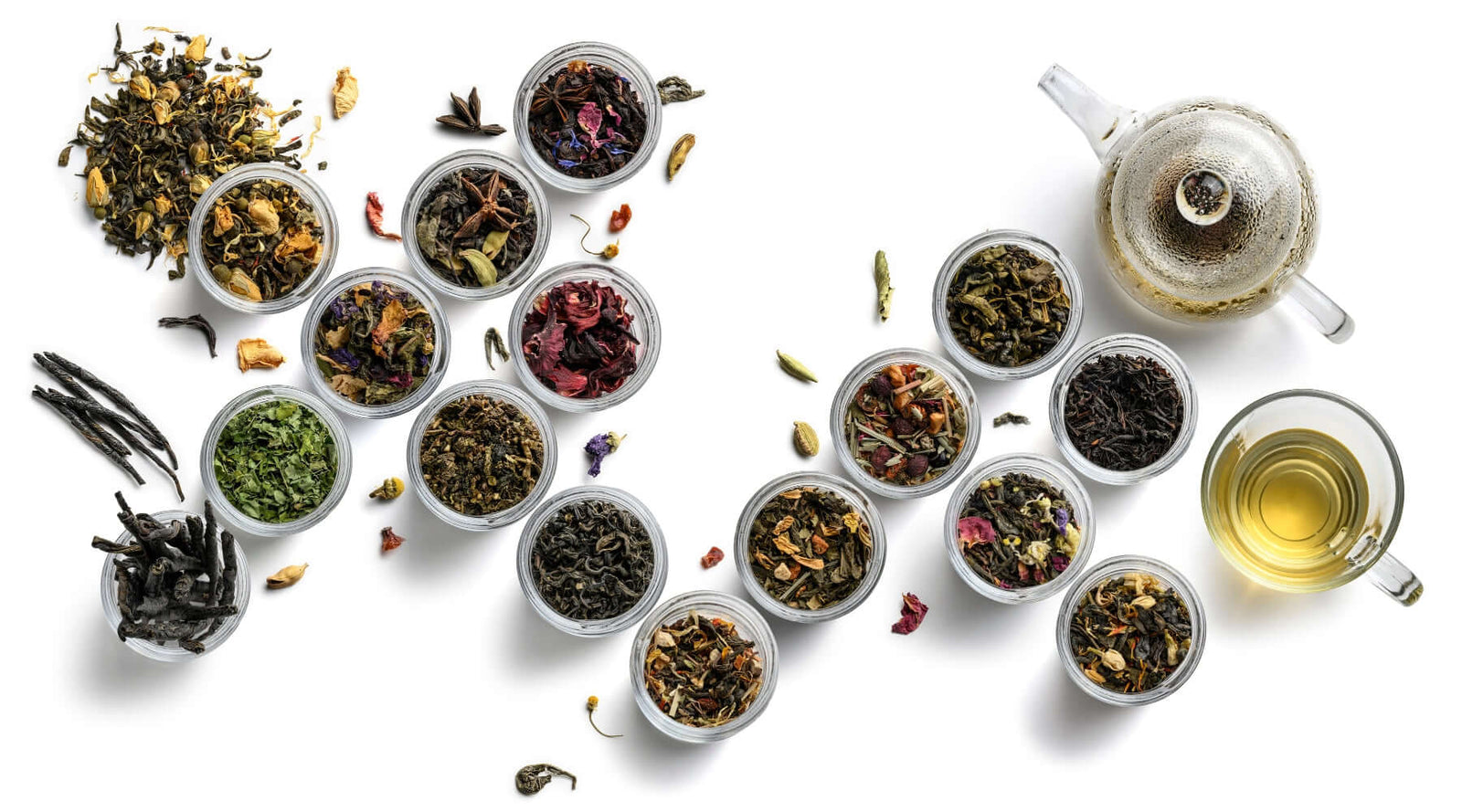Tea Sourcing and Procurement
Where do your teas come from? This is a question often asked by our customers, and we'd be glad to share the 'process' with you.

Sourcing tea
The primary tea growing regions of the world are China, Taiwan, India, Africa and Sri Lanka. There are other smaller producers in places like Vietnam, Nepal and even the USA. But with everything else, not all tea is grown the same.
Large Scale vs Small Scale
In general, lower quality teas come from large scale operations. These are the teas used to make most mass produced bagged tea, instant tea and bottled tea. Generally, these mass produced have a higher probability of being contaminated by pesticides or heavy metals. This can occur on site (i.e. near heavy industry) or during the transport process.
On the other hand, much of the loose tea market comes from smaller scale tea farms or cooperatives. By their nature, most of these are located in areas away from heavy industry and pollution, and focus more on quality over quantity.
Choosing the source
Some teas are single sourced (i.e. they come directly from the farm to us), others are sourced by cooperatives (which represent multiple tea farms in a region) or importers/blenders who have exclusive relationships with specific tea operations. We purchase from all three types!

Quality Control
In order for us to do business with any tea source, we do our due diligence by making sure we do as much screening of the producer/importer as possible. To better illustrate, here are some of the items we look for:
1. Visits to tea estates and factories
If during one such visit it is determined that proper procedures are not being followed, producers' risk being dropped from the supplier list. Site inspections to gardens and factories include checking the following:
- Employee hygiene
- Hand washing
- Proper use and storage of clothing in all facilities
- Use of appropriate footwear, headwear, equipment and utensils
- Employee health and injury status
- Regulated traffic flow
- Chemical usage (kept to a minimum)
- Identification of allergens and related controls and procedures (where appropriate)
2. THIRD PARTY FOOD SAFETY CERTIFIED
Wherever possible we do business with companies that are certified by third party food safety programs, including FSSC 2000, HACCP, BRC, and SQF.
3. testing
Continual testing is an important part of our food safety program. Under close scrutiny is everything from chemical residue to non-organic agricultural additives and product integrity.
Routine tests are conducted in-house and by approved experts at all suppliers and trade partners.
4. What is tested?
All teas and herbal teas are routinely tested and screened for hazardous foreign materials.
- Sri Lankan teas are tested by 3rd party laboratories for historical reasons
- All tea are tested according to stringent EU standards
5. Pre-shipment testing
Before any shipment of a food product is authorized and accepted, Tea Tasters screen pre-shipment samples for contaminants. (These are small random samples pulled from incoming lots of tea.) If hazardous foreign materials are found, the shipment is refused.
6. Arrival samples
Upon arrival of any shipment, an arrival sample is pulled and tested against the approved pre-shipment sample. If any hazardous material is discovered, the tea will be destroyed. Further shipments from the supplier responsible will be placed on our "close scrutiny" list. Any manufacturer found to be misrepresenting shipments is dropped from our supplier list.

Conclusion
While nothing is 100%, we are confident that our teas are of the highest quality and come from the top tier of tea farms. We drink our teas every day - and would only sell teas that we ourselves would drink!




